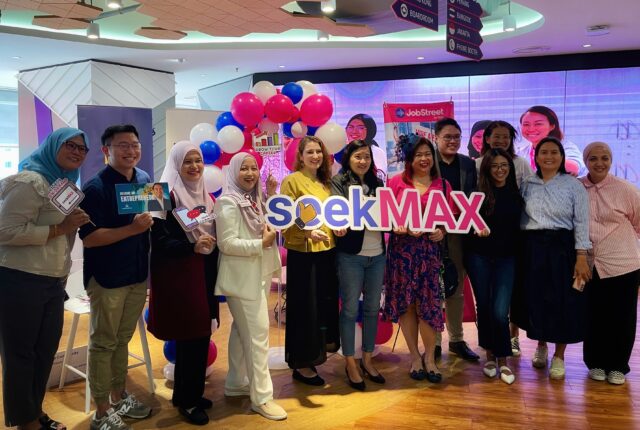Inputs from the 2024 UN Civil Society Conference (UNCSC) on the upcoming Summit of the Future.
Introduction:
The UN Civil Society Conference was held in Nairobi, Kenya on May 9 & 10 with over 2,000 participants from 1,424 organizations. This year, the conference focused on gathering insights from Civil Society for the Pact for the Future, the Global Digital Compact and the Declaration for Future Generations leading up to the 2024 Summit of the Future in September. There were 4 plenary and interactive sessions, 62 off-site and online events before and during the Conference, 38 onsite workshops, 64 exhibits and 20 ImPACT coalitions formed.
The SDSN and SDG Academy had an exhibit at the conference where we spoke with participants from hundreds of civil society organizations about our work and highlighted SDG Academy’s courses related to the SDG subject areas highlighted in the Pact for the Future. SDG Academy Director Patrick Paul Walsh was a member of the program committee and also made a statement during a plenary session – Civil Society Recommendations on the 5 Chapters of the Pact for the Future | United Nations. He reported on Chapter 3 of the Pact for the Future and the Global Digital Compact.
Day One: Recommendations from the Civil Society Dialogues
The first day of the conference was primarily composed of open workshops, discussions and dialogue around the 5 Chapters of the Pact for the Future document. Workshops were organized by Civil Society Organizations (CSOs) and their UN partners and were open to all participants at the conference. Workshop titles included Connecting Grassroots and Global Visions for Gender Justice; Revolutionary Solidarity: How CSOs can better support social movements; Innovating Education for Impact: Harnessing AI to Support SDGs in Global Communities and many more! At the end of the first day, Patrick Paul Walsh reported on three key recommendations he had gathered throughout the morning workshops on Chapter 3 of the Pact for the Future and the Global Digital Compact.
Recommendation 1) Enhance Multilateral Governance of Dangerous Technologies with meaningful input from multi-stakeholders.
We, therefore, call on the UN to establish urgent multilateral processes of global oversight of each class of dangerous cutting-edge technologies. Non-governmental stakeholders also have the knowledge and soft power to enhance multilateral governance of dangerous technologies.
Recommendation 2) The public sector should run and own Digital Public Infrastructures, Software and Content to deliver public services.
UN Instruments such as the UNESCO Recommendation on Open Educational Resources (OER), the UNESCO Recommendation on Open Science and the UN Code of Conduct on Information Integrity demonstrate how the public sector can run and own digital assets. Openly licensed digital learning content is vital digital public goods that provide an invaluable means to ensure knowledge sharing. Open licensing of learning content allows for knowledge to be curated, accessed, shared, repurposed and adapted. This could be applied to vaccines (COVID-19) and many SDG products and services. The government has three choices. First, allow the private to own and run the digital asset while regulating for people and the planet. Secondly, one can keep the global digital asset “in-house,” particularly for the provision of global public goods and services, where privacy matters, and in the area of social and environmental protection. Finally, the government can take the lead in a partnership with the private sector but have smart procurement and service contracts to protect people and the planet.
Recommendation 3) The public sector needs to invest in human capital across the world to run and own global digital public infrastructures, software and content to deliver public services and enhance the ability to share as global public goods.
The UN General Assembly has recommended establishing new global and regional centers of excellence training to ensure that in all parts of the world, the public sector is empowered to participate in the research and development, production, public ownership, open licensing and regulatory oversight of advanced technologies to support sustainable development.
Day 2: ImPACT Coalitions
On the second day of UNCSC, CSOs were invited to participate in ImPACT Coalitions meetings where CSOs could join forces with others interested in devising strategies and actions toward the recommendations made on Day 1. ImPACT Coalitions act as affinity groups within the conference and leading up to the Summit of the Future (SOTF), and members of the Coalitions will be encouraged to sustain the coalitions beyond the SOTF.
ImPACT Coalitions Programme | United Nations
ANTÓNIO GUTERRES, United Nations Secretary-General, was delighted by the diversity of the delegations, who represented the breadth of civil society. Over half the representatives were women, and young people turned out in force. Civil society has an enormous impact in every corner of the world – pushing for peace and justice and advancing gender equality and sustainable development, with many working at great personal risk. Mr. Guterres saluted civil society and asked them to keep working with the United Nations to build a better world.
WILLIAM RUTO, President of Kenya, said the role of civil society was crucial in defining policies and actions to deliver sustainable development. Kenya was determined to reinvigorate their development agenda by harnessing the power of civil society. All participants should reflect on how to translate the outcomes of the discussion into transformative and actionable results. Kenya remained steadfast in its commitment to a strong partnership with an empowered civil society to advance the pursuit of a suitable, just and inclusive future.
Conclusion:
MELISSA FLEMING, Under-Secretary-General of Global Communications at the UN, was the host of UNCSC. Her staff will draft the Conference’s final report with input from the co-chairs, event summaries, pre-conference briefings, interactive dialogues, workshops and imPACT coalitions. The document will include the key recommendations made by Patrick Paul Walsh on Chapter 3 of the Pact for the Future and the Global Digital Compact.
SDG Academy and SDSN made many new connections with aligned CSOs from around the world, specifically, in Africa. Co-Chairs of the Conference, Ms. Carole Ageng’o and Ms. Nudhara Yusuf, published a reflection letter, which is now available online.
The outcomes of the onsite workshops, the civil society recommendations presented, and the interactive dialogue will be presented in an impact of the future outcome package on the 31st of May in New York in a hybrid format shared globally. SDG Academy and SDSN will attend the UN HQ in NY for this reflection. In addition, civil society will contribute to the pre-SOTF provisional plans. Join the post-conference Town Hall from anywhere in the world via the UN Web TV.
Edit June 1, 2024: The Outcomes Package is available online on the conference website.
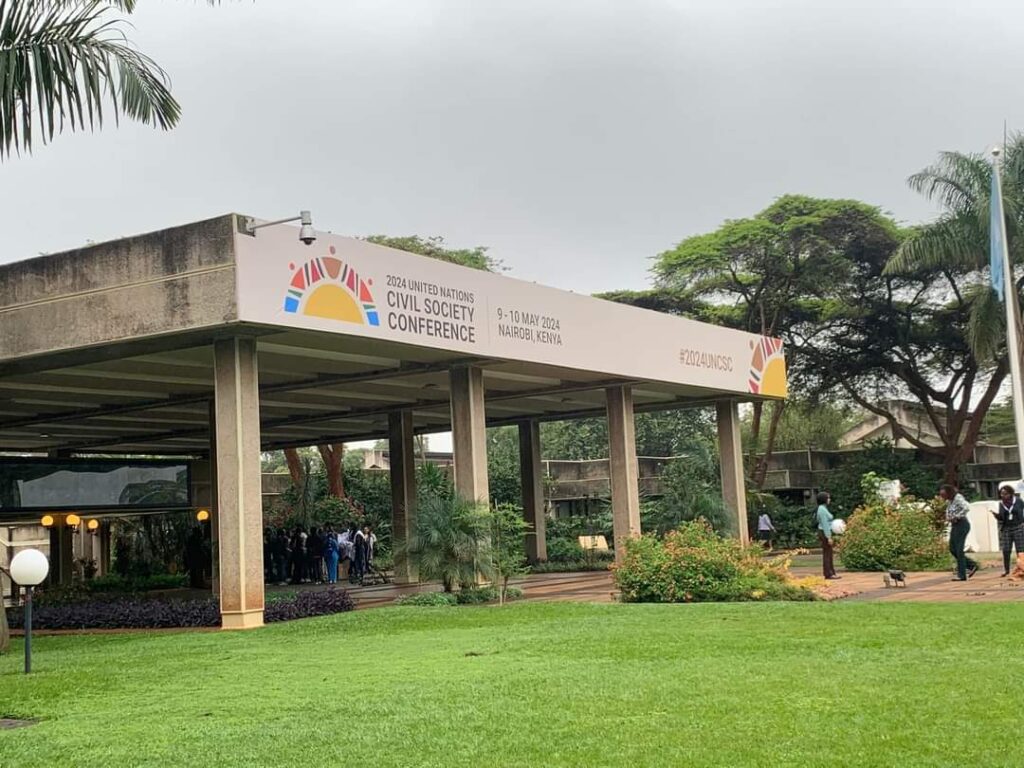
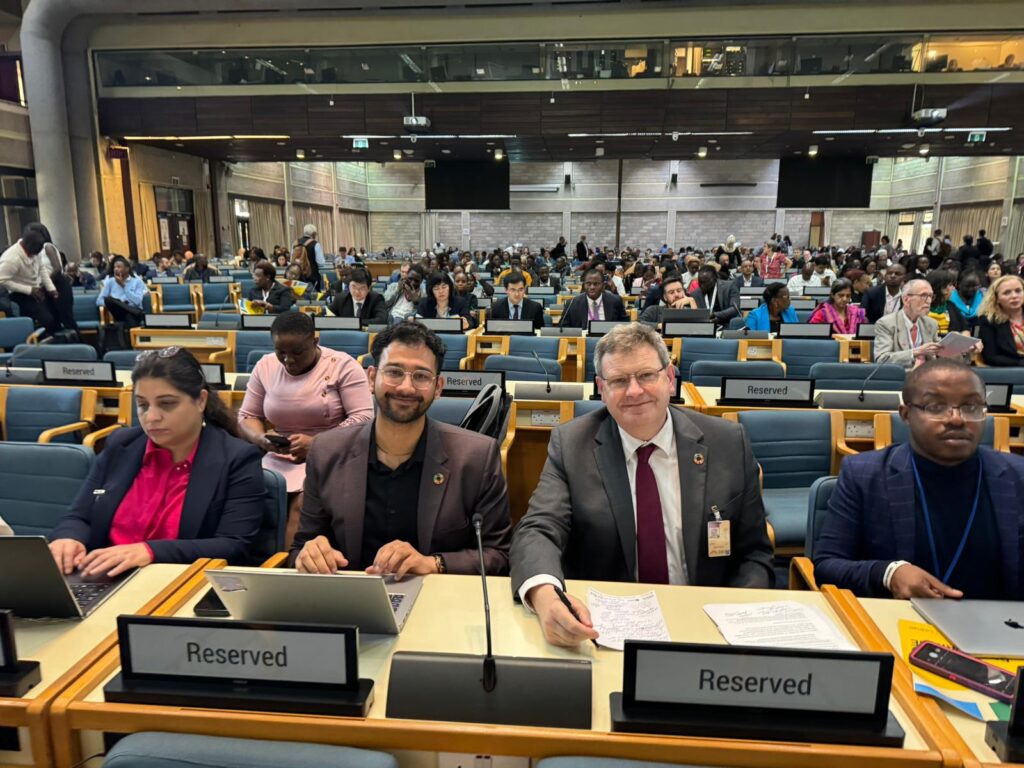
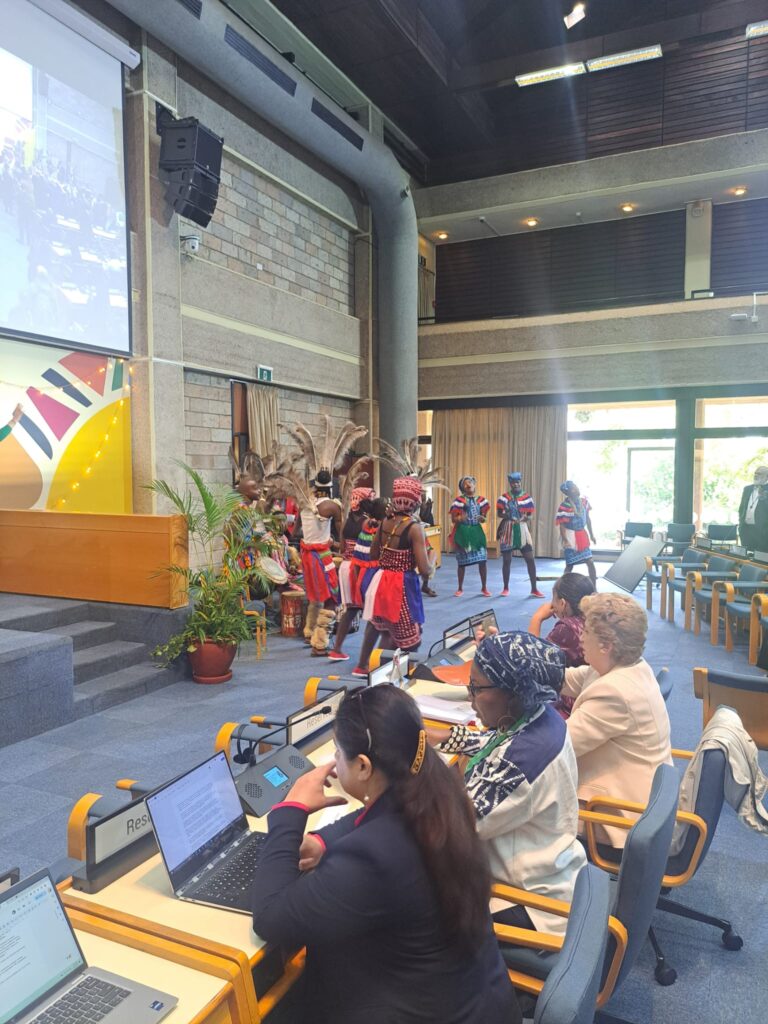
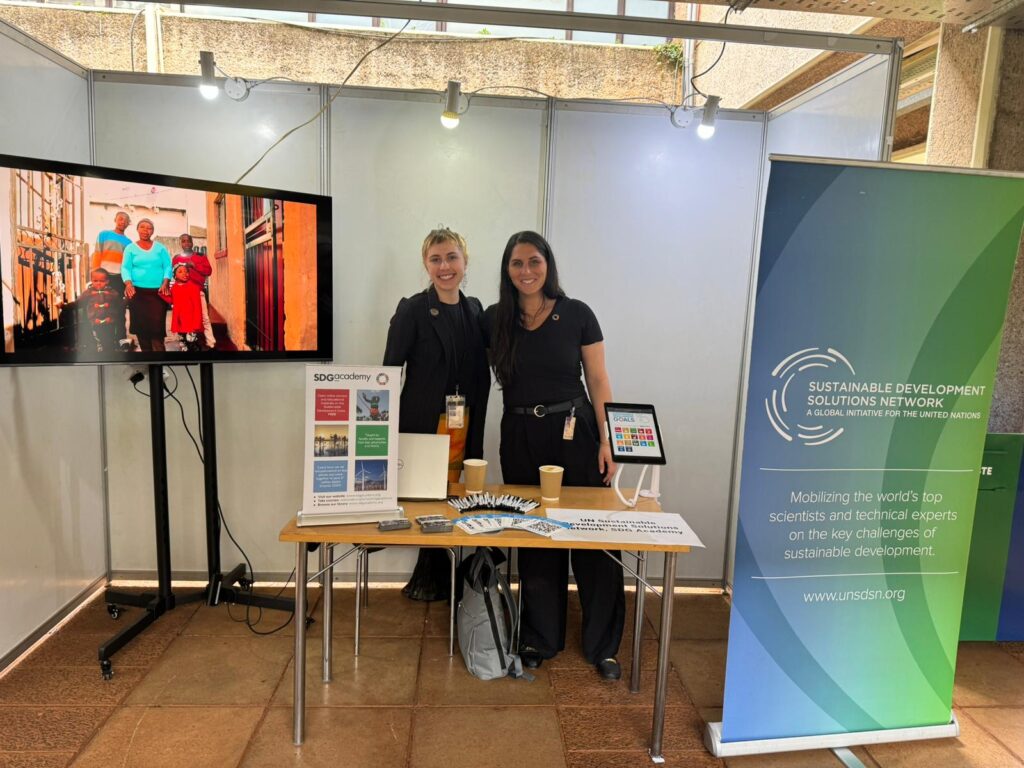
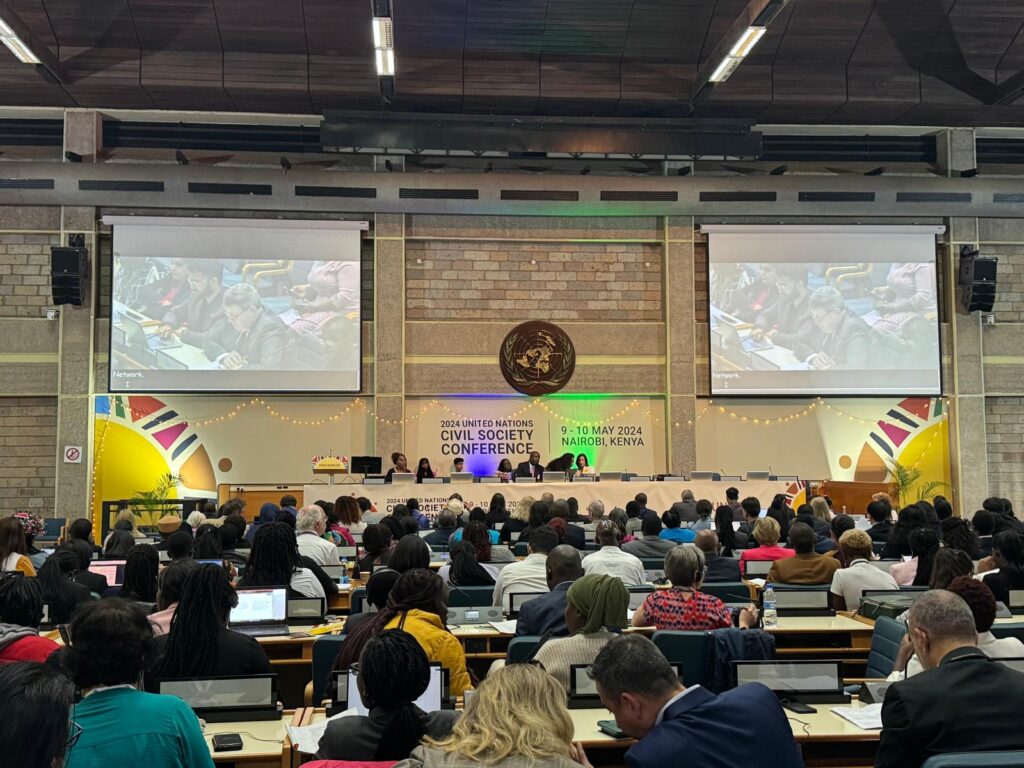
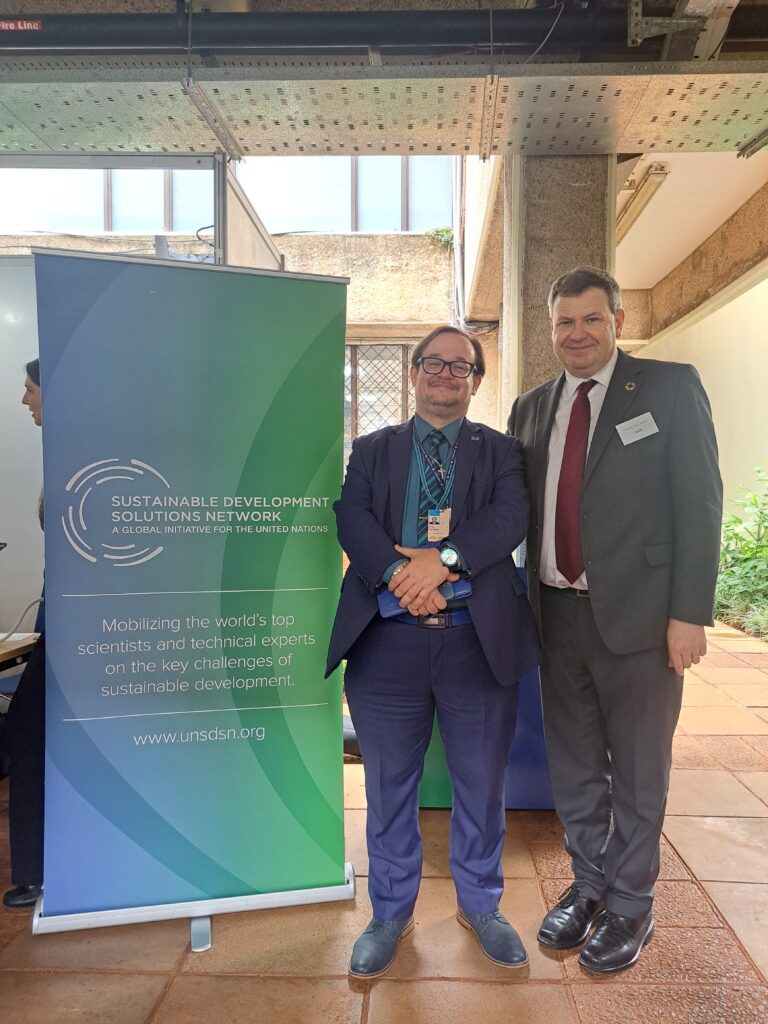

Helen Perham
Helen is the Communications Coordinator with the SDG Academy. Helen received her Bachelor’s degree in International Development and Social Change and Studio Art and her Master’s degree in International Development from Clark University. Helen is interested in gender, health, and economic justice. She is passionate about SDG 16 and the incorporation of peace studies and conflict resolution in sustainable development.


